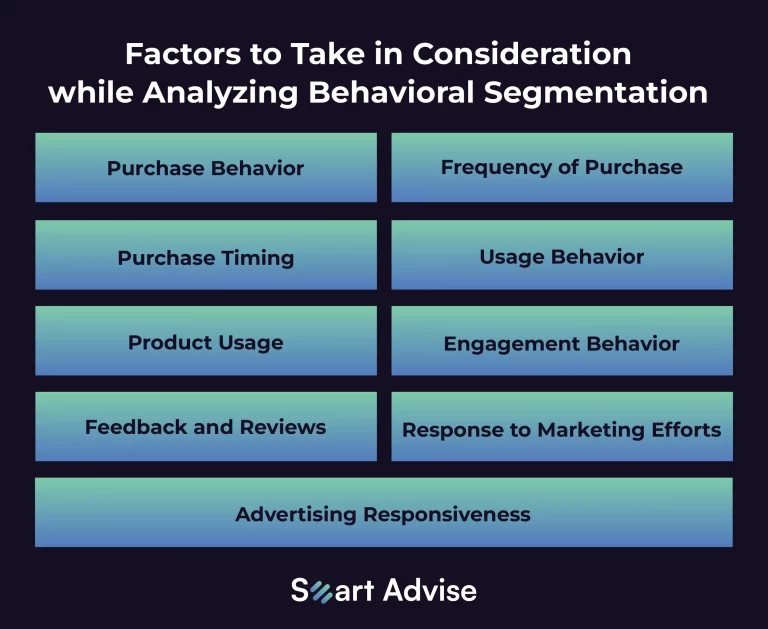
Learn about in-depth segmentation and its effective use to gain a competitive advantage and target your ideal audience effectively.
Understanding your target audience is crucial. Companies that can effectively pinpoint their ideal customers gain a significant competitive advantage. Market segmentation is the key to this understanding. It involves dividing a larger market into smaller, more manageable segments based on shared characteristics. This process not only helps businesses focus their marketing efforts but also increases their ability to filter-out their products and services to meet specific customer needs.
The Concept of Market Segmentation
Market segmentation is a strategic approach that recognizes diversity within a market and aims to address the unique needs and preferences of different customer groups. Instead of treating all customers as a monolithic entity, businesses break them down into smaller segments based on various criteria such as demographics, psychographics, behavior, and geography.
Demographic Segmentation
Demographic segmentation categorizes customers based on quantifiable characteristics such as age, gender, income, education, marital status, and occupation. It provides valuable insights into the population’s composition and allows businesses to create targeted marketing campaigns.
Psychographic Segmentation
Psychographic segmentation considers customers’ lifestyles, values, attitudes, and interests. It delves into the emotional and psychological aspects of consumer behavior, enabling companies to align their messaging and offerings with customers’ belief systems.
Behavioral Segmentation
Behavioral segmentation looks at customer actions, including purchase history, brand loyalty, usage patterns, and response to marketing initiatives. This approach helps companies understand what drives their customers and how to engage them effectively.

Geographic Segmentation
Geographic segmentation divides the market by geographic boundaries, such as regions, countries, states, or urban vs. rural areas. It is especially important for businesses with location-dependent offerings or regional preferences.
The Significance of Market Segmentation
1. Targeted Marketing
One of the most apparent benefits of market segmentation is the ability to craft highly targeted marketing campaigns. By understanding the unique characteristics of each segment, businesses can tailor their messaging to resonate with specific customer groups. This not only increases the effectiveness of marketing efforts but also reduces wastage by not advertising to irrelevant audiences.
Statistical Data : According to a report by Instapage, companies that use personalized marketing strategies achieve an average increase in sales of 20%. This underscores the importance of targeting the right audience through effective segmentation.
2. Improved Product Development
Market segmentation doesn’t stop at marketing; it also plays a significant role in product development. When businesses understand the distinct needs and preferences of different segments, they can create products or services that cater to those specific demands. This leads to the development of offerings that are more likely to succeed in the market.
3. Enhanced Customer Satisfaction
By delivering products and services that align with the expectations and desires of each segment, businesses can significantly enhance customer satisfaction. Satisfied customers are more likely to become loyal advocates and repeat buyers, driving long-term success.
Statistical Data : According to Salesforce, 70% of buying experiences are influenced by how customers feel they are being understood. This demonstrates the critical role of customer understanding, which is at the core of effective market segmentation.
4. Efficient Resource Allocation
Market segmentation allows companies to allocate their resources more efficiently. Instead of spreading marketing budgets thinly across a broad audience, resources can be concentrated on the segments that offer the highest potential for conversion and revenue generation.
5. Competitive Advantage
Businesses that invest in market segmentation gain a competitive edge. They are better equipped to identify emerging trends and opportunities within specific segments, enabling them to stay ahead of competitors who employ a one-size-fits-all approach.
The Role of Data in Market Segmentation
To implement effective market segmentation, businesses rely heavily on data collection and analysis. In the digital age, access to vast amounts of data from various sources, including customer interactions, social media, and online behavior, has made segmentation more precise than ever before.
Challenges in Market Segmentation
While market segmentation offers numerous advantages, it’s not without its challenges. Some common hurdles include:
1. Data Accuracy and Privacy Concerns
Collecting accurate data can be challenging, and privacy concerns have led to stricter regulations on data usage. Businesses must navigate these issues while respecting customers’ privacy rights.
2. Evolving Customer Behavior
Consumer behavior is dynamic and can change rapidly. Keeping segmentation strategies up to date requires continuous monitoring and adaptation.
3. Over-segmentation
Segmenting the market into too many small segments can lead to inefficiency and complexity in marketing efforts. Striking the right balance is essential.
In Summary
Market segmentation provides the strategic framework needed to accomplish different needs of different types of consumers. The diverse bifurcation of the market into manageable segments helps businesses to address the most urgent needs of the market. This way, segmenting reliefs businesses with many operations like in supply chain management, resource allocation, and demographic constraints. Segmentation requires a handful amount of knowledge and research and so, connect with us now!